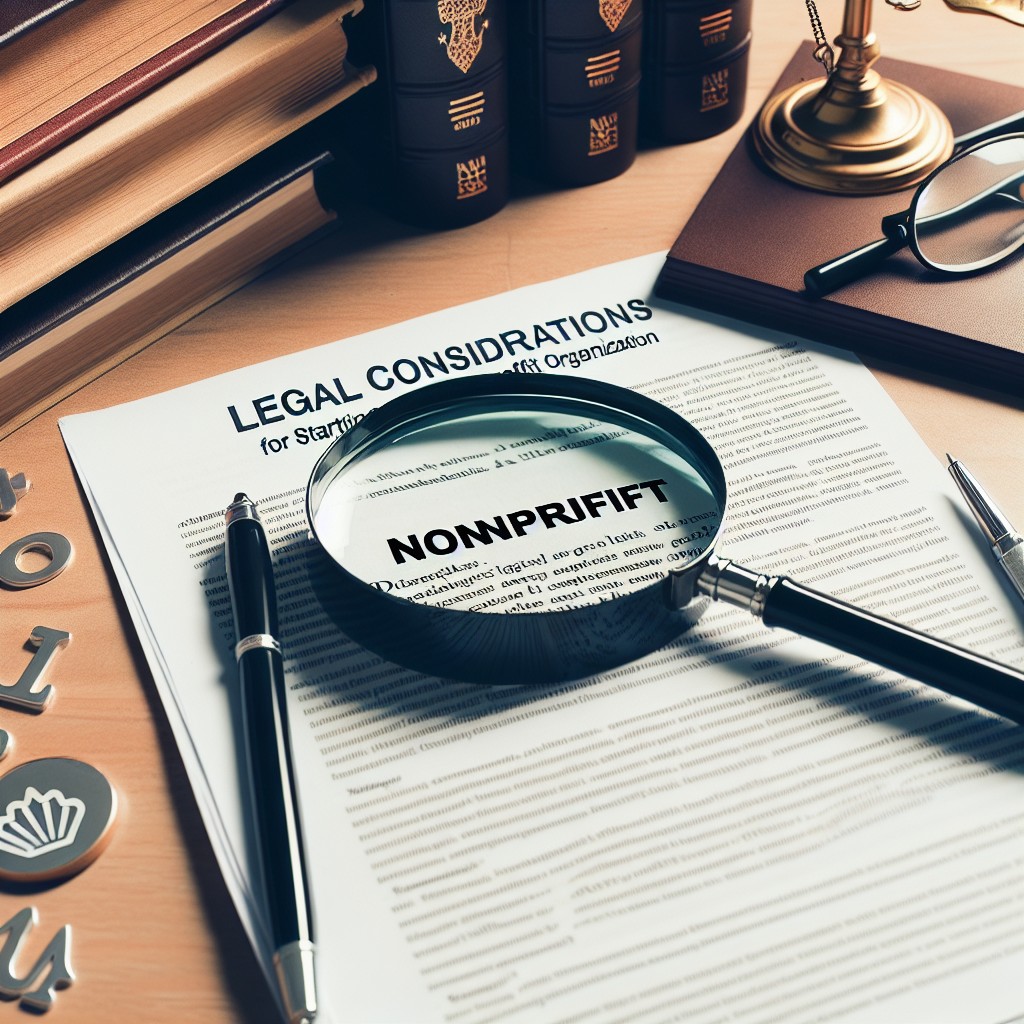Starting a nonprofit organization can be a rewarding endeavor, but it also involves various legal considerations that need to be taken into account. In order to ensure that your nonprofit operates in compliance with the law, it is important to understand the legal requirements and obligations that come with establishing and running this type of organization. This article will provide an overview of the key legal considerations for starting a nonprofit organization.
1. Incorporation: One of the first steps in starting a nonprofit organization is to incorporate it as a legal entity. This involves filing the necessary paperwork with the appropriate state government agency. By incorporating, your organization gains legal recognition and protection.
2. Tax-Exempt Status: Nonprofit organizations are eligible for tax-exempt status, which means they are not required to pay federal income tax. To obtain tax-exempt status, you must apply to the Internal Revenue Service (IRS) by filing Form 1023 or Form 1023-EZ.
3. Board of Directors: Nonprofits are governed by a board of directors who are responsible for making key decisions and overseeing the organization's activities. It is important to establish a board that consists of individuals who are committed to the organization's mission and have the necessary skills and expertise.
4. Bylaws: Bylaws serve as the governing document for a nonprofit organization and outline its internal rules and procedures. It is important to draft comprehensive bylaws that address key areas such as board composition, decision-making processes, and conflict of interest policies.
5. Fundraising and Solicitation: Nonprofits often rely on fundraising and solicitation of donations to support their programs and activities. However, there are legal requirements that govern these activities, such as obtaining the necessary permits and disclosing certain information to potential donors.
6. Reporting and Compliance: Nonprofits are required to file annual reports with the IRS and state authorities to maintain their tax-exempt status. Additionally, they must comply with various federal and state regulations, such as those related to employment, fundraising, and financial reporting.
7. Intellectual Property: Nonprofits may develop intellectual property in the form of logos, trademarks, or copyrighted materials. It is important to understand the legal protections available for these assets and take steps to safeguard them.
8. Liability and Insurance: Nonprofit organizations can be held liable for their actions or negligence. It is recommended to obtain liability insurance to protect the organization and its board members from potential lawsuits.
9. Compliance with State and Federal Laws: Nonprofits must comply with a range of state and federal laws, including those related to employment, discrimination, privacy, and lobbying. It is crucial to stay updated on any changes in the law that may affect your organization.
Starting a nonprofit organization requires careful planning and consideration of the legal aspects involved. By understanding and addressing the legal considerations outlined in this article, you can set your nonprofit on a path to success and ensure its long-term sustainability.

Published on May 24, 2023
Legal Considerations for Starting a Nonprofit Organization
Share This Article
More Articles You Might Like
Discover More Content
Explore our collection of articles across various topics and categories. From cutting-edge technology insights to wellness wisdom, we curate the best stories to expand your horizons.
Article ID: 305